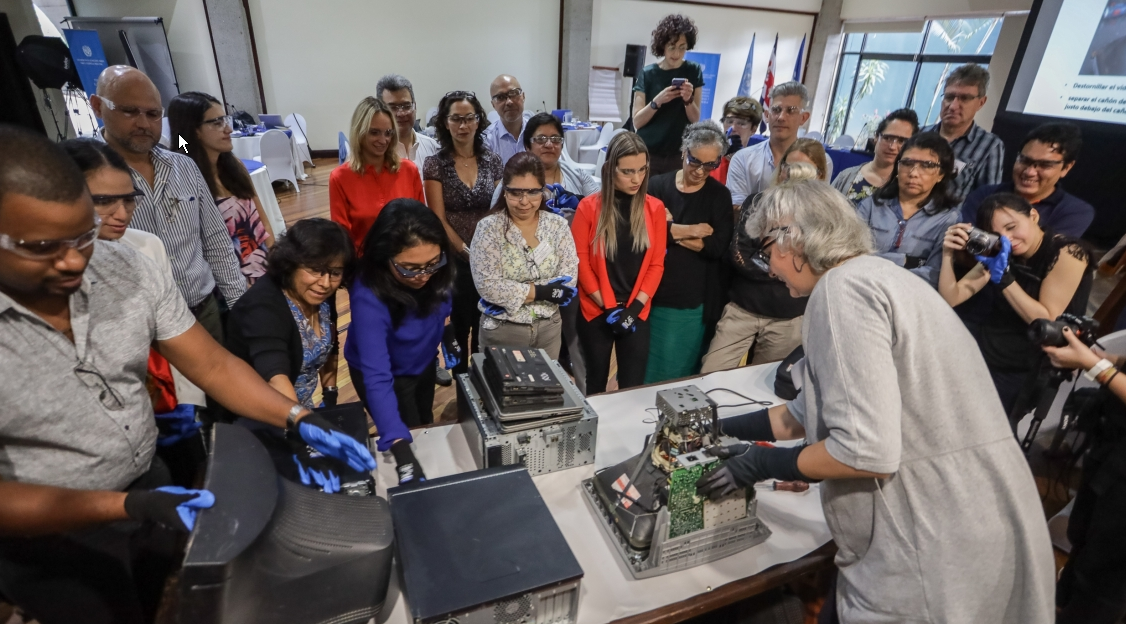Hands on e-waste management training
29 March 2019

SAN JOSE, 22 March 2019 – Over 30 representatives of 13 Latin American countries and international experts have gathered to learn and share experiences on e-waste management, from system design to health impacts.
The second Expert Meeting on the Effective Management and Disposal of E-waste in Latin America under the Stockholm Convention on Persistent Organic Pollutants was convened by the United Nations Industrial Development Organization (UNIDO), in cooperation with the Ministry of Health of Costa Rica and with co-financing from the Global Environment Facility (GEF).
The UNIDO-GEF project assists 13 countries with tackling the e-waste challenges in the region, with annual expert meetings providing an opportunity for the participating countries and institutions to get together and share knowledge and experiences.
Following the project launch in Quito in March 2018, this year’s Expert Meeting kicked off on 18 March with Project Steering and Technical Committees meetings and a series of presentations by local recycling companies and UN partner organizations.
The E-waste Academy for Managers (EWAM) on 19 March saw a series of panel discussions and group sessions on topics ranging from legal aspects of e-waste management to logistical issues such as collection and transport of e-waste. The Academy is the first of four that will be co-ordinated by the United Nations University (UNU).
The EWAM-Managers Edition is a global forum and training event for stakeholders involved in the practical design and implementation of e-waste management solutions, offering a platform to exchange best practices, discuss existing challenges among practitioners and support better-informed decision-making. It is just one of the examples of capacity-building activities that form part of the project alongside awareness-raising, e-waste policy and regulation advice and financial advice, among other activities.
With presentations from renowned international e-waste experts on plastics, financing and more, the Academy also featured a number of practical sessions with participants learning how to dismantle electrical equipment, including a visit to the Global Electric Electronic Processing plant.
“As the issue of e-waste continues to represent a threat to both the global environment and human health, activities like this are essential for harmonizing and strengthening regional cooperation and knowledge exchange,” affirms UNIDO project manager, Alfredo Cueva.
Currently, the world produces approximately 50 million tonnes of e-waste a year – the equivalent of the total weight of all the commercial airliners ever made. This figure is predicted to rise to 120m tonnes by 2050.
UNIDO collaborates with a large number of organizations on the project, including national governments other organzsations and local e-waste recyclers, SC and BC regional centres, the International Labour Organization (ILO), the International Telecommunications Union (ITU), and the World Health Organization (WHO), as well as various other partners, such as Dell, RELAC and the International Solid Waste Association (ISWA).
Take a look at the event’s photo album
For further information, please contact:
Alfredo Cueva
UNIDO Project Manager